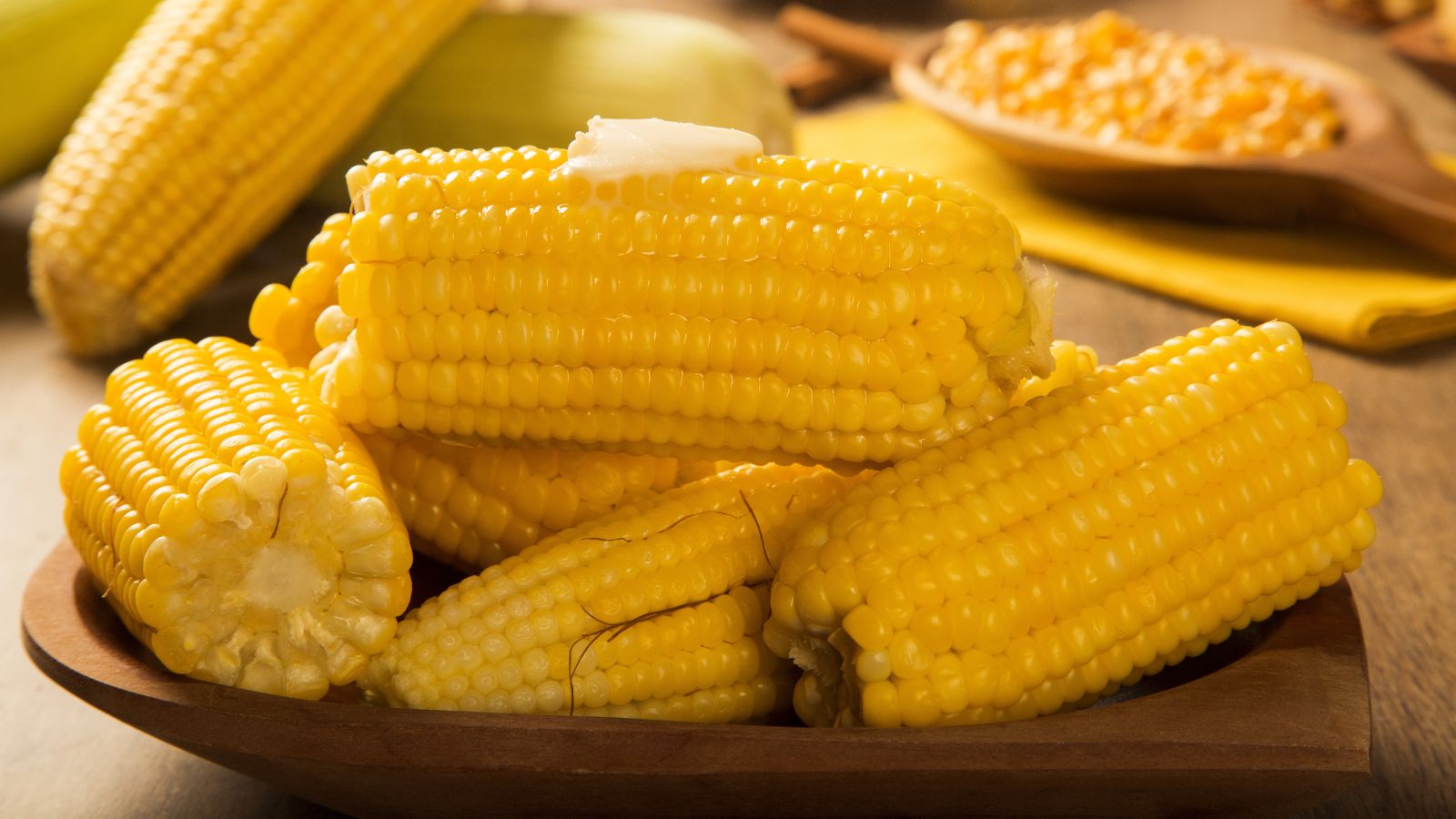Dogs can be more sensitive to certain foods compared to humans, which means we need to be careful what we feed them. As many of the following foods can be toxic, it’s important to avoid feeding them to your dog at all costs. Here are 17 foods that could be deadly for dogs.
Xylitol

This is an artificial sweetener that’s found in many minty products, such as chewing gum and toothpaste. If your dog ingests xylitol, it can lower their blood sugar. This is supported by Blue Cross, which writes, “Xylitol can cause hypoglycemia (low blood sugar levels) as a dog’s pancreas will confuse it with real sugar, which makes it release more insulin.”
Chocolate, Coffee, and Caffeine

These products contain methylxanthines, which cause vomiting, diarrhea, and potentially death. Darker chocolate and purer coffee are particularly toxic, but all of these foods should be kept out of reach of your dog. Symptoms include hyperactivity, an abnormal heartbeat, and seizures.
Grapes and Raisins

If a dog eats grapes or raisins, then it can cause acute kidney failure. Symptoms of this poisoning include vomiting, lethargy, and decreased urination. While toxic doses vary, each dog is individual, and any amount could harm them, so keep any grapes to yourself.
Onions and Garlic

Onions and garlic belong to the allium family, which means if they’re eaten by dogs, they can damage red blood cells and cause anemia. This includes all forms of onions and garlic, regardless of whether they’ve been cooked or are raw. Symptoms can look like weakness, vomiting, and breathlessness.
Avocado

While this may be a great food for humans, it can be toxic for dogs. For example, Wag! writes, “Avocado poisoning in dogs occurs when dogs ingest the pit of an avocado. The avocado pit contains a poisonous substance called persin, and, when ingested, can cause dogs to become ill.”
Alcohol

There can be so many problems if your dog drinks alcohol. It can cause intoxication, vomiting, diarrhea, and central nervous system depression. In severe cases, alcohol poisoning can put your dog into a coma or even cause death. Even small amounts can be dangerous.
Macadamia Nuts

If your dog eats macadamia nuts, then you may start to notice symptoms such as weakness, hypothermia, and tremors. Sometimes, your dog may even start vomiting or face other neurological symptoms. These effects will usually start after 12 hours of your dog ingesting macadamia nuts.
Yeast Dough

Yeast dough can be toxic for dogs because fermentation causes alcohol to be produced. This means your dog may suffer from alcohol poisoning. Milder symptoms may mean your dog suffers from bloating and gas, which is because it can cause the stomach to twist.
Bones

Bones can create a risk of choking, which can be deadly for any dog. Not only this, but they can cause intestinal blockages or internal punctures from any splinters. Cooked bones are more likely to splinter and cause harm. Always monitor your dog while they’re enjoying a bone, and only ever buy store-bought ones.
Corn on the Cob

Corn on the cob is hard for dogs to digest and this means it can cause intestinal blockages. Symptoms of this can include vomiting, pain, and lethargy. If your dog eats any corn, then they’ll require immediate veterinary attention. It can be very serious and may even result in death.
Salt

Pumpkin writes, “When a dog consumes too much salt, salt poisoning can occur. We call this hypernatremia, meaning the sodium levels in the blood are too high.” Too much salt can lead to excessive thirst, urination, and sodium ion poisoning. In more serious cases, you may notice that your dog has tremors, diarrhea, or vomiting.
Raw/Undercooked Meat and Eggs

If a dog consumes raw or undercooked meat and eggs, then it can cause salmonella poisoning, which is the same as in humans. Raw eggs also contain avidin, which reduces the absorption of biotin. Eating raw and undercooked meat or eggs can also lead to gastroneal problems and other health issues.
Citrus

Consuming too much citrus can cause nervous system depression in dogs. Symptoms to look out for include irritation, vomiting, and diarrhea. All parts of the citrus plant are toxic to dogs if they’re eaten in large amounts. Make sure to keep all citrus fruits away from them.
Nuts

There are many varieties of nuts, such as almonds, pistachios, and Brazil nuts, that are toxic to dogs. They contain aflatoxins, which are poisonous substances found in food. Nuts also have a high fat content, which can lead to pancreatitis. Symptoms of nut ingestion include weakness, depression, and neurological symptoms.
Sugary Foods

The Kennel Club writes, “After eating lots of sugar, or even lots of fat, dogs can develop pancreatitis (an inflammation of the pancreas), which may cause them to be put off their food, develop vomiting, diarrhea, [and] lethargy, and go into organ failure.” Too much sugar can also lead to obesity in dogs, which creates its own health problems.
Persimmons, Peaches, and Plums

The seeds or pits of these fruits can be deadly for dogs and, if swallowed whole, may cause intestinal obstruction. These fruits also contain cyanide, which is toxic to both dogs and humans. Ingesting large amounts of this fruit can also lead to diarrhea and stomach upset.
Artificial Sweeteners

Along with xylitol, other artificial sweeteners can also be harmful to dogs and cause various symptoms. For example, eating any artificial sweeteners may cause a dog to have digestive upset, gain weight, and have metabolic changes. Always check the ingredient list of anything you feed your dog to ensure it doesn’t contain any sweeteners.
No comments:
Post a Comment